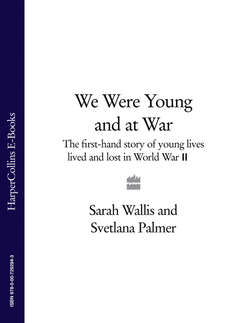Читать книгу We Were Young and at War: The first-hand story of young lives lived and lost in World War Two - Sarah Wallis - Страница 5
Preface
ОглавлениеWhile the diary of Anne Frank remains the most famous child’s diary the world over, other young people’s accounts that survived the Second World War have been largely forgotten, or remain unknown outside their own countries. Yet, written in private, concealed from parental gaze or enemy capture, these faded notebooks and singed papers tell us so much of what it was like to grow up in that war. Intimate and often more direct than those of adults, these diaries were a place to confide and to question, to preserve one’s dignity, or maintain independence of spirit and thought.
The diaries and correspondence that follow have been chosen for the uniqueness of the personal narrative and the quality of the writing. Though we initially set out to find diaries that followed the authors through adolescence to the end of the war, we soon realized that, unlike fiction, real diaries couldn’t always be made to fit. While some span the entire conflict, others start later, or contain large gaps; a few end abruptly, all too often a measure of the author’s short life. Parts of some diaries are missing; it is a miracle some have survived at all. Where we have included letters, many are telling by their omissions, as well as the writer’s tone.
Though ordered chronologically, this book does not set out to be a history of the war. Instead, it is driven by the stories of the contributors, framed by historical events and interwoven to bring out the often unexpected parallels and collisions of thoughts, ideas and emotions of those caught up in historic events, sometimes on opposite sides of the conflict, or thousands of miles apart. None of the diarists can be said to be representative of their nation: some succumbed to the ideas they were fed by adults around them or by the state, others confound our expectations; many of them perhaps shed light on why it is that wars are fought by the young.
After years of gathering, translating and researching these stories, we feel very close to our diarists. This is due not only to the length of time we have spent with them but also to the nature of their testimonies, so candid and so often courageous; they tackle the unpalatable, and reveal so much of themselves.
Svetlana Palmer and Sarah Wallis, London, 2009
